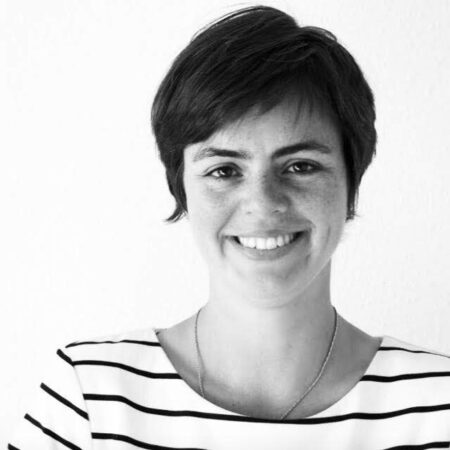Learning for improvement from COVID-19 intensive care patient experiences


During her fellowship project, in a series of moving interviews, Annelieke Driessen was able to capture some of the experiences of people who had been critically ill with COVID-19 and were cared for in an Intensive Care Unit (ICU). She spent time interviewing them, their family members, and also family members of people who did not survive. As it reaches an end, we spoke to Annelieke about her fellowship.
Why were you drawn to this area of study for your fellowship?
When I applied to the fellowship at THIS Institute, COVID-19 was still a relatively new condition. The media were dedicating a lot of time to reporting on the pressures on intensive care units, but there was still little insight about how patients and family members experienced admission, ICU stay and recovery. I was eager to contribute to such an important area of research, and the fellowship provided me with a unique opportunity to do so.
I was also drawn to the idea of collaborating with the University of Oxford, which would enable the use of the interviews for a new module on the valued patient experiences website Healthtalk.org. Healthtalk has made important contributions to improving accessibility to accounts of illness and disease and understanding them in a way that goes beyond the individual experience. I felt a module on experiences of ICU and COVID-19 would constitute an important archive, in which the strangeness of the times we were living through could be captured for the public and researchers in the future.
What aspect of the project has been most impactful to you personally?
I conducted forty interviews with patients and family members as part of the study, and I conducted all but two of them online. Previously I would have interviewed them in their own homes or at another location of their choice, but at the time it wasn’t possible due to public health risks and regulations. As we approached summer 2021, I could begin to interview people in person if they preferred it or were unable to access an online interview. These interviews often lasted longer than two hours, which says something about how much participants had to say.
I found doing these interviews really impactful: all participants shared powerful, affective stories of what had happened to them and how they had managed it, and often, what they were still struggling with. As an anthropologist I am well aware that the social conditions in which we fall ill shape the way we cope, make sense of, live, and die with ill-health and suffering, but these interviews really drove that home to me. At the same time, what really stood out to me were the myriad ways in which people try to make things work even in difficult circumstances such as these – unfortunately, the possibilities for doing so are unevenly distributed, and often come at a cost.
What has it meant to you to be a THIS Institute fellow?
To me, being a researcher means learning continuously, and I learned a lot being a THIS Institute fellow. To do this research into patient and family member experiences of intensive care and COVID-19 has meant developing and furthering my knowledge of the world of intensive care, the intricacies of providing and receiving care in a pandemic, working with patient representatives, developing a Healthtalk module, and supervising students within a bigger project.
I have met inspiring other researchers at THIS, albeit online (I didn’t get to meet most of my colleague fellows in person until the last month of my fellowship) and worked with some of them more intensely. Notably, the project would not have been so successful without the generous support and contributions from Lisa Hinton, a senior researcher at THIS.
What is something you have been surprised to learn over the course of your fellowship?
The period of lockdown and social distancing was a difficult time for everybody. For researchers like me, who are used to going into the field, that is, out into schools, community centres, hospitals, primary care practices, people’s homes and elsewhere, it meant adjusting to a whole new way of working.
It surprised me that so much was possible in these changed circumstances. We really did make it work as best we could. That’s not to say it was the same – I’m convinced there is a quality to face-to-face communication that gets lost in online interactions – but much was possible, and much was learned that has changed the way we do research now that we can meet up in person again. I am not romanticising that time or the hard work the changes involved, but I found that rapid collective innovativeness inspiring.
Listen to Annelieke’s powerful interviews with patients and family members here.
Recorded for healthtalk.org, watch and hear people sharing their personal stories from being critically ill with COVID-19 and being in an intensive care unit:
Please accept cookies or click here to view this content.